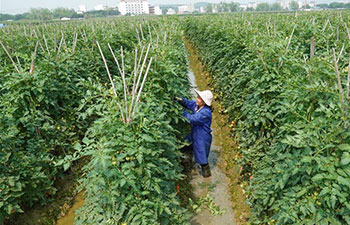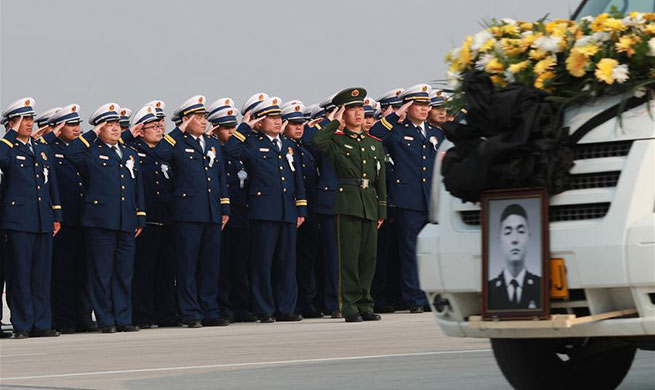WINDHOEK, April 6 (Xinhua) -- Namibia's meat processing and marketing entity Meatco exported the first consignment of beef to China in March, signaling the commencement of a new channel of trade.
The southwestern African country has about 2.4 million heads of cattle, of which 427,017 were marketed at an average producer price of 37.64 Namibia dollars per kg (about 2.66 U.S. dollars), according to Meat Board Statistics 2018.
The meat processing and marketing entity said that statistics for live export for 2018 was 30,874 heads, while export abattoirs stood at 77,471 heads.
Local economist Daniel Kavishe on Friday told Xinhua that ultimately any boost in exports of products that are legally sourced in Namibia is a positive for the country's foreign earnings and ultimately good for the country.
The move to export beef to China should be welcomed as it allows our farmers and producers access to new markets that were previously untapped, he added.
Kavishe is of the view that exporters of meat have the advantage of setting the price and managing supply.
Meatco Board Member, Mushokobandji Mwilima in a statement said the Asian market gives Namibia the choice of another valuable market.
"An added bonus for Meatco is the placement of our products in a niche market where we can achieve the best prices possible for Meatco producers and continue to contribute to the economy in a positive manner," he said.
Mwilima said the significance of the Chinese market, compared with the EU and others, is that it allows for the exportation of bone-in beef.
"The fact that Meatco will be allowed to export bone-in beef will most likely allow the Namibian producers to send bigger volumes of beef into the Chinese market," he added.
Namibia's trade and industrialization minister Tjekero Tweya said at the launch ceremony of beef export to China in Windhoek last week that Namibia will focus on value addition to the beef before it is exported.
He said value addition will help the beef sector generate more income and create employment.
"We will not continue to send unprocessed meat, but we will have value addition," he said, reiterating that producers should take value addition seriously before exporting unprocessed products.
The journey to export beef to China began in 2011 when an agreement on animal health and quarantine was signed in Beijing before a Health Certificate was approved in 2015.
A final memorandum of understanding was signed on March 29, 2018, while declarations for lumpy skin disease were completed in early 2019.













